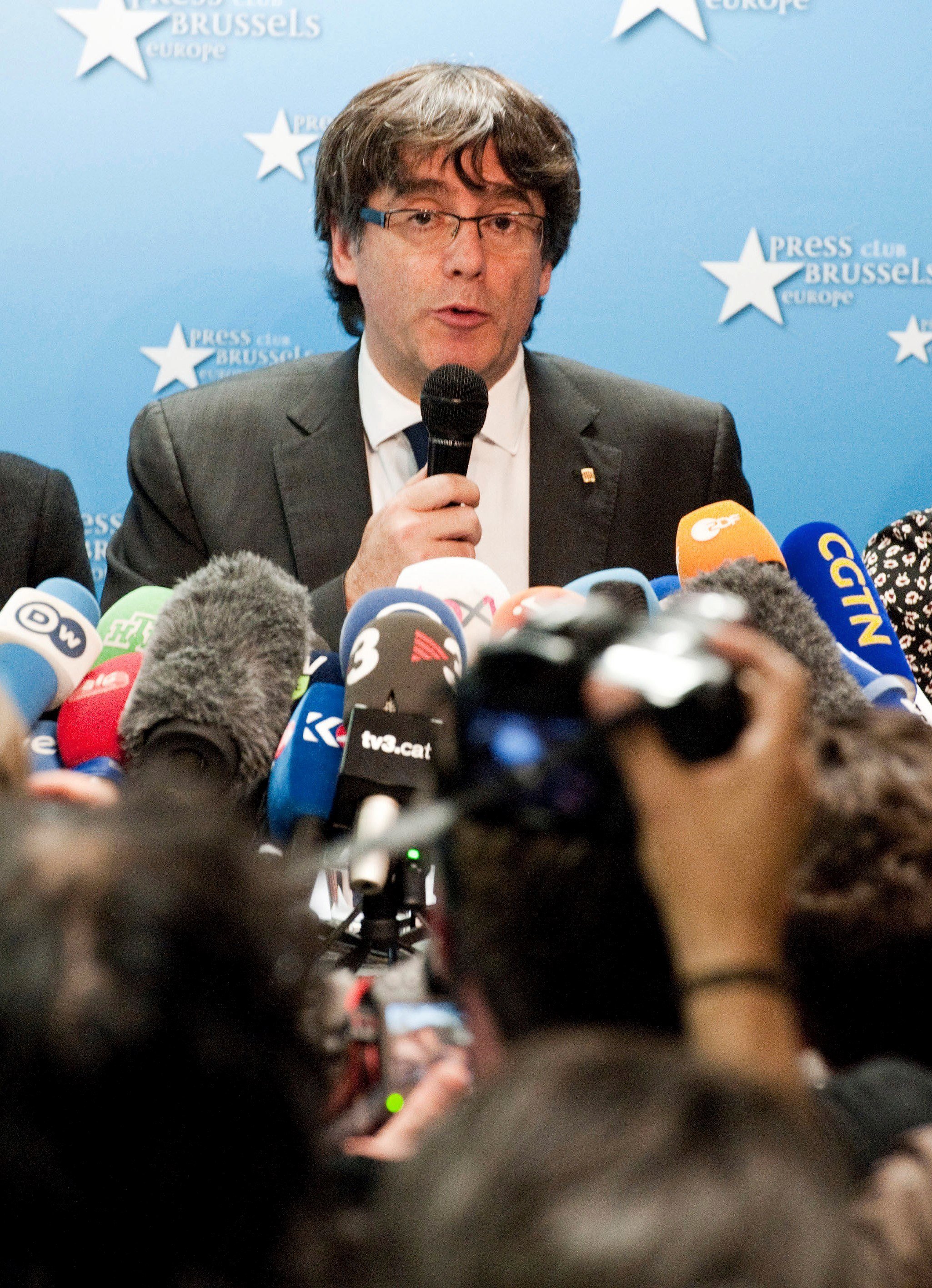The judge from Spain's Supreme Court investigating the case against Catalan president Carles Puigdemont and the four ministers with him in Brussels, Toni Comín, Clara Ponsatí, Lluís Puig and Meritxell Serret, has withdrawn the European Arrest Warrants and international arrest warrants against the five.
In so doing the judge has stopped the Belgian legal process with the aim being that the president and the ministers come freely to Spain where he can call them to court and apply the precautionary measures he believes appropriate, which could include preventive detention. This measure is more than probable given that the judge believes the case to be indissoluble, that the accused worked together as a group with a common aim, and given that he sees a flight risk, considering Puigdemont and the ministers to currently be fugitives from Spanish justice.
As soon as Puigdemont, Comín, Puig, Serret and Ponsatí set foot on Spanish territory they will be arrested, however, as the Supreme Court hasn't withdrawn the national arrest warrant.
It's unprecedented for a judge to cancel an arrest warrant once issued. In this case the warrant was actually issued by a different judge, Carmen Lamela of Spain's National Audience court before Llarena took over the case. After this change of judge, and given that the rest of those accused are in "inferior conditions", he justifies overturning the original decision. Llarena's announcement comes on the first official day of campaigning for the 21st December Catalan election.
The judge bases his decision on public statements by the accused of their wish to return to Spain to take on the roles they are standing for in the election. He also wants to avoid the "impunity of taking refuge in another state" of the European Union. He also aims to keep the charges the same for all those accused as Belgian justice, having to equate the Spanish charges to crimes in Belgian criminal law as part of the extradition procedure, is not currently considering either rebellion or sedition.
Deactivating Belgium
Llarena asks Belgian authorities to not proceed with the requested collaboration and asks them to return the paperwork. He believes the warrants should be revoked because the crime has multiple subjects with inseparable legal unity, and that the different crimes under consideration could have contradictory legal responses in Spain and Belgium.
Llarena defends the unity of the case and argues that there could be incompatibilities with the different crimes they are accused of, saying that the ministers who didn't go to Brussels are in a "worse" situation than the rest.
The judge notes that the European Arrest Warrant is an instrument of legal collaboration and that, once issued, the instructing judge can at any time consider the convenience or suitability of its maintenance, taking into account the circumstances which support it in accordance with the law and the effects that the warrant could have on the criminal process in progress. A crime with multiple subjects which requires a homogeneous response.
The original orders were issued on 3rd November. The judge describes his view of the now different situation. On the one hand, after the orders were issued, "those under investigation seem to have demonstrated their intention to return to Spain, with the aim of taking possession of and exercising elected roles having stood recently for election".
On the other hand, he says that "after the arrest warrants were issued, it has been established that the facts might have been perpetrated in concert by all those under investigation and with an inseparable legal unity. In other words, that the refinement of the different criminal responsibilities has to be carried out in a unified manner, as otherwise it could break the containment of the case and lead the process to contradictory and divergent responses for the different participants".
According to the judge, the current maintenance of the arrest warrants will not facilitate an adequate evolution of the process "as, given that it's possible that the state (by application of articles 3 to 5 of the framework decision) might partially refuse to execute the arrest warrants, this raises the possibility of a restriction of the list of charges against the fugitives, which would make it more difficult to give the homogeneous response which justified the accumulation of the actions and would introduce disruption to the defence of those under investigation who are at the disposition of this instructing body, who could be investigated and tried for all the crimes the investigating judge foresees, thus putting them in 'worse right' than those who have fled".
As such, the judge considers it opportune, having considered all the interests in play, to withdraw the arrest warrants and the request for international collaboration they entail. He also believes that such withdrawal doesn't impose any burden on those affected by it, "since, as those charged opposed the state [of Belgium] executing the act of collaboration being analysed, that is what this resolution brings them".
Legal council for the president and ministers in Belgium can now appeal the decision.

